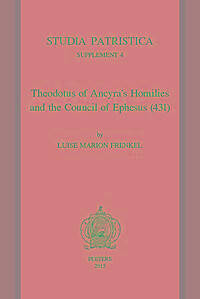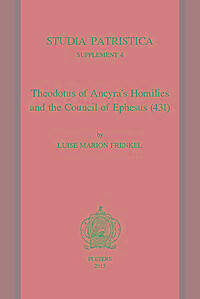
- Afhalen na 1 uur in een winkel met voorraad
- Gratis thuislevering in België vanaf € 30
- Ruim aanbod met 7 miljoen producten
- Afhalen na 1 uur in een winkel met voorraad
- Gratis thuislevering in België vanaf € 30
- Ruim aanbod met 7 miljoen producten
Zoeken
Omschrijving
A substantial proportion of surviving late-antique conciliar homilies are by Theodotus, metropolitan bishop of Ancyra. Here presented in English translation, they provide valuable evidence for an essential and effective means of communication by which councils presented and enforced themselves. The analysis relates their content to the conciliar settings, considers the conventions of ancient rhetoric, and reflects the reception of the texts, especially through collections of conciliar documents. The book clarifies the regional parameters and disputes over episcopal territorial authority in which Theodotus' theology and pastoral activity developed. Both informed his overall positive and constructive perspective on faith and the role of preachers and bishops, promoting unity and cohesion. The analysis of Theodotus' involvement in the First Council of Ephesus, especially in the techniques used to shape and preserve allegiances and to defend a view or decision, contributes to an understanding of the processes of identity formation, seeking agreement, and proclaiming consensus, even when it had not been achieved.
Specificaties
Betrokkenen
- Auteur(s):
- Uitgeverij:
Inhoud
- Aantal bladzijden:
- 296
- Taal:
- Engels
- Reeks:
- Reeksnummer:
- nr. 4
Eigenschappen
- Productcode (EAN):
- 9789042931473
- Verschijningsdatum:
- 22/06/2015
- Uitvoering:
- Paperback
- Formaat:
- Trade paperback (VS)
- Afmetingen:
- 155 mm x 231 mm
- Gewicht:
- 589 g

Alleen bij Standaard Boekhandel
+ 152 punten op je klantenkaart van Standaard Boekhandel
Beoordelingen
We publiceren alleen reviews die voldoen aan de voorwaarden voor reviews. Bekijk onze voorwaarden voor reviews.











